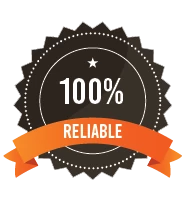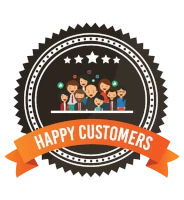Liquor and Sustainability Certifications: Eco-Friendly Distilleries and Green Spirits

Explore the rise of eco-friendly distilleries and certifications in the liquor industry, highlighting sustainable practices and consumer demand for green spirits.
In recent years, the global movement towards sustainability has reached nearly every industry, including the liquor and spirits sector. As consumers become increasingly conscious of the environmental impact of their choices, they are seeking out products that not only satisfy their taste buds but also align with their values of sustainability and environmental responsibility. This shift has prompted many distilleries worldwide to adopt eco-friendly practices and pursue certifications that validate their commitment to green initiatives.
It is advisable to have alcohol/liquor drinking license in Maharashtra. You can apply online for alcohol/liquor drinking liquor license here : Click Here to Apply Now
The Rise of Eco-Friendly Distilleries
Traditional methods of liquor production can have significant environmental consequences, from energy consumption to water usage and waste generation. However, innovative distilleries are finding ways to mitigate these impacts through various sustainable practices:
1. Energy Efficiency: Distilleries are investing in energy-efficient technologies, such as biomass boilers, solar panels, and LED lighting, to reduce their carbon footprint. By minimizing energy consumption, they lower greenhouse gas emissions associated with production.
2. Water Conservation: Water is a precious resource, particularly in regions prone to drought or water scarcity. Distilleries are implementing water recycling systems and optimizing processes to minimize water usage during production and cleaning operations.
3. Sustainable Sourcing: Many distilleries are prioritizing locally sourced ingredients to support regional economies and reduce transportation-related emissions. Additionally, some are opting for organic farming practices to minimize pesticide use and soil degradation.
4. Waste Management: Instead of discarding byproducts like spent grains, distilleries are finding innovative ways to repurpose them. These byproducts can be utilized as animal feed, compost, or even converted into biofuels, thus reducing waste sent to landfills.
Certifications and Standards
To demonstrate their commitment to sustainability, distilleries can obtain certifications from recognized organizations that evaluate environmental and social responsibility criteria. Some notable certifications include:
1. Certified Organic: This label ensures that the ingredients used in the spirits are grown without synthetic pesticides or fertilizers, promoting soil health and biodiversity.
2. Fair Trade: Distilleries that adhere to Fair Trade standards ensure fair wages and better working conditions for farmers and workers involved in the supply chain.
3. B Corp Certification: B Corps are businesses that meet rigorous standards of social and environmental performance, accountability, and transparency.
4. Carbon Neutral Certification: Distilleries can achieve carbon neutrality by measuring and offsetting their greenhouse gas emissions through initiatives like reforestation or investing in renewable energy projects.
Consumer Awareness and Demand
As consumers become more informed about sustainability issues, they are actively seeking out eco-friendly spirits. Labels and certifications play a crucial role in guiding consumer choices, providing transparency about a product's environmental impact. Consumers are increasingly willing to pay a premium for products that align with their values, making sustainability a competitive advantage for distilleries.
The Future of Green Spirits
Looking ahead, the trend towards sustainability in the liquor industry is likely to continue. Distilleries that prioritize environmental stewardship not only contribute to global efforts to combat climate change but also strengthen their brand reputation and appeal to a growing market of eco-conscious consumers.
In conclusion, the intersection of liquor and sustainability is paving the way for a more environmentally friendly future. By adopting eco-friendly practices and obtaining certifications that validate their efforts, distilleries are not only reducing their ecological footprint but also meeting the evolving expectations of conscientious consumers. As this movement gains momentum, it promises to reshape the industry towards a more sustainable and responsible path forward.
How to get drinking liquor license : Click Here to Apply Now











